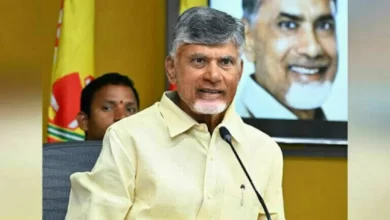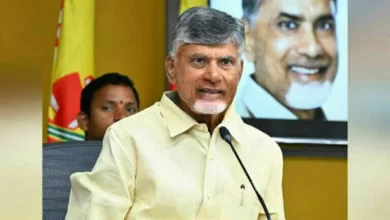Rich nations seek to turn tables on India, China with call to pay for climate damage

Loss and Damage funding, one of the most critical issues before poor and vulnerable countries and among the most contentious, has run into rough weather at the UN Climate Conference (COP27) over a move by the developed countries to make India and China also contribute to the fund — a call that goes against India’s stand that only historical emitters and polluters (read: developed countries) have to contribute to it.
The Egyptian Presidency said there are very divergent views on the matter and that discussing funding for Loss and Damage is likely to continue to be challenging at COP27. This is because of multiple reasons.
One, developed nations have proposed that “high income countries except the small island developing states” will contribute to the Loss and Damage fund, when such a fund is eventually is created. These countries should include India and China, according to them. Even though India is a lower middle income country as per World Bank, delegates from the developed world said they are also pushing to club countries with high emissions such as India and China along with first world countries.
Secondly, according to independent observers, the US, Germany, EU and other developed nations have not accepted the G77 (a group of 134 developing countries including India) and China’s proposal on Loss and Damage, which is guided by the principles of Paris Agreement, “including the principle of equity and common but differentiated responsibilities and respective capabilities (countries will act as per their respective circumstances) in the light of different national circumstances, and taking into account historical responsibilities.”
The G77 and China proposed the establishment of a fund for assisting developing countries in meeting their costs of addressing non-economic and economic loss and damage associated with the adverse effects of climate change, including slow onset events and extreme weather events especially in the ongoing, and ex-post (including rehabilitation recovery, and reconstruction) context. The proposal also suggested that a Transitional Committee develop the objectives, principles and operational modalities of the fund and convene its initial meeting no later than March 2023.
“US, Germany, EU have objected to the G77+China proposal. They have initiated talks of asking India and China to contribute to Loss and Damage funding. It appears that this is an attempt to break the G77+China unity on this matter. The developed countries are not inspiring confidence because they are only talking about processes, meetings and workshops but are resistant to a funding facility,” said a developing country observer who was witnessing the negotiations on Loss and Damage, asking not to be named.
“In fact, issues like these arise because at COP27, G77 and China is fully united on the question of loss and damage. This thread of unity is due to the common circumstances that all these countries face as a consequence of the excessive emissions of developed countries. Various false narratives are floated by those who have opposed this unity consistently. We are confident that with the leadership of all the various sections of G77 and China, a just and equitable agreement would be reached,” said a member of the Indian delegation, who asked not to be named.
He also explained that the Intergovernmental Panel on Climate Change’s (IPCC) assessment report 6 proves that the responsibility for warming is directly proportional to the contribution to cumulative CO2 emissions. “All CO2 emissions, whenever they take place, contribute equally to warming. So, when the conversations on loss and damage began is not relevant to the contribution to emissions. For historical cumulative emissions from the pre-industrial period till 2019, India’s share is less than 4%, as noted by the Working Group III Report of the IPCC AR6.”
The delegate also referred to an assessment by India that shows the Annex-I countries (rich nations) owe the world a carbon debt of 790 GtCO2 from cumulative emissions between 1850 – 2019. That translates into around $79 trillion.
“This is an attempt to break G77 and China unity and completely evade historical responsibility, nothing else,” said Harjeet Singh, head of global political strategy, Climate Action Network International.
The COP27 Presidency acknowledged on Wednesday that there are major disagreements over this issue. “The issue is significant and response has to be commensurate to that importance. We as Presidency have paid extra attention to that. We are guiding the ministers overseeing this. We have said we want something meaningful on this. We owe it to the countries on the frontline of climate crisis,” said Egypt’s COP27 ambassador Wael Aboulmagd.
Loss and Damage is a particularly important issue for African countries and small islands.
For the first time in 28 years, since the adoption of the UN climate convention, 194 parties agreed to introduce Loss and Damage funding as an agenda item in COP27, although the agenda item came with some riders that observers said developed countries had pushed the Presidency to introduce.
Frans Timmermans, executive vice president, European Commission for the European Green Deal, said he expects countries with “financial potential” that have “grown enormously” to pay for Loss and Damage and added that they should not be let off the hook. He mentioned China in particular, which according to him is one of the biggest economies on the planet with a lot of financial strength. “Why should they not be made co responsible for funding loss numbers? I fail to see that,” he said.
“In the proposal of the G77, it would be money going to all developing countries, whereas we believe you have to concentrate your efforts on the most vulnerable first and foremost and start,” he added.







